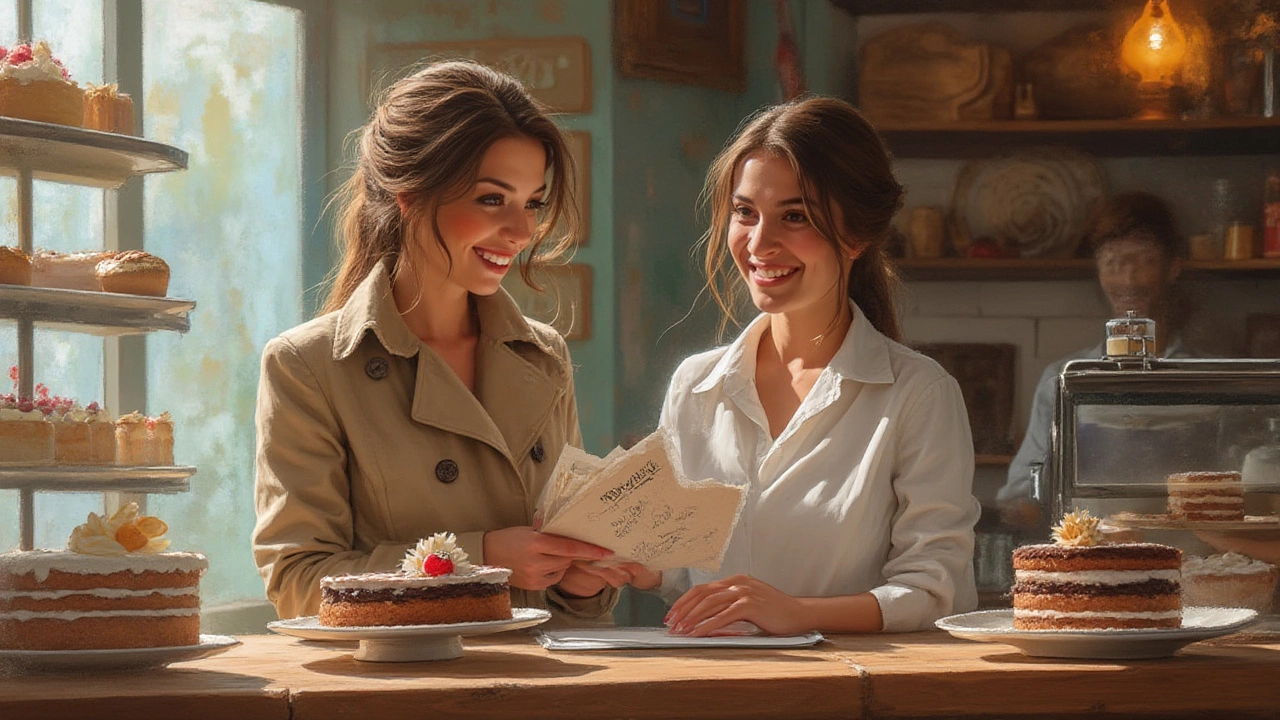How to Ask for Cake Prices: Tips for Getting the Best Deals from Bakeries
Figuring out cake prices doesn’t have to be awkward. Learn how to ask your baker for prices with confidence, get the details you need, and avoid surprises.
Thinking about ordering a custom cake but worried about the price? You’re not alone. Most people skip the fun part of cake design because the cost seems mysterious. The good news is that the price breaks down into clear, predictable pieces. Knowing those pieces lets you shop smarter and still get a cake that wows.
Size and servings. Bigger cakes need more batter, frosting, and time. A 6‑inch round for 10 people will cost far less than a 12‑inch tiered cake for 40. Bakers usually quote per serving, so start by counting how many guests you’ll have.
Flavor and fillings. Simple vanilla sponge with buttercream costs less than a chocolate mousse cake with fruit curd layers. Premium ingredients—like fresh berries, premium cocoa, or exotic extracts—add a few extra pounds.
Decoration complexity. A smooth fondant cover with a simple logo is cheaper than intricate hand‑piped flowers or 3‑D sculpted designs. Every extra hour a decorator spends on piping or painting translates to higher labor fees.
Materials. Fondant, edible gold leaf, sugar crystals, and custom toppers all have separate costs. Some bakeries include a set number of decorations in the base price and charge extra for anything beyond that.
Delivery and setup. If the cake needs to travel far or be set up on a specific table, expect a delivery fee. Some shops waive it for local orders or large purchases.
Region and bakery reputation. Prices in London or major cities tend to be higher than in smaller towns. A bakery known for award‑winning designs may charge a premium, but you also get a higher guarantee of quality.
Start with a clear budget. Write down the maximum amount you’re willing to spend before you even look at designs. This helps you and the baker stay realistic.
Use a cake cost calculator. Plug in size, flavor, and decoration level to get a rough estimate. Many bakeries will give you a free quote if you provide these basics.
Prioritize what matters most. If the flavor is your top priority, spend a bit more on premium ingredients and keep decorations simple. If the look is crucial, choose a modest flavor base and allocate more of the budget to design.
Ask about package deals. Some shops bundle cake, delivery, and extra decorations at a lower overall price than a la carte pricing.
Order early. Last‑minute requests often come with rush fees. Planning a few weeks ahead gives bakeries room to work efficiently and may reduce costs.
Consider DIY accents. Simple edible flowers or a personalized topper you buy yourself can save on labor while still looking professional.
Finally, get at least two quotes. Comparing prices from different bakeries helps you see where you’re paying for quality and where you might be overspending.
Custom cake pricing doesn’t have to be a guessing game. By breaking down the factors—size, flavor, decoration, materials, delivery, and location—you can predict the cost before you commit. Use the budgeting tips above, talk openly with your baker, and you’ll end up with a cake that looks amazing without breaking the bank.

Figuring out cake prices doesn’t have to be awkward. Learn how to ask your baker for prices with confidence, get the details you need, and avoid surprises.